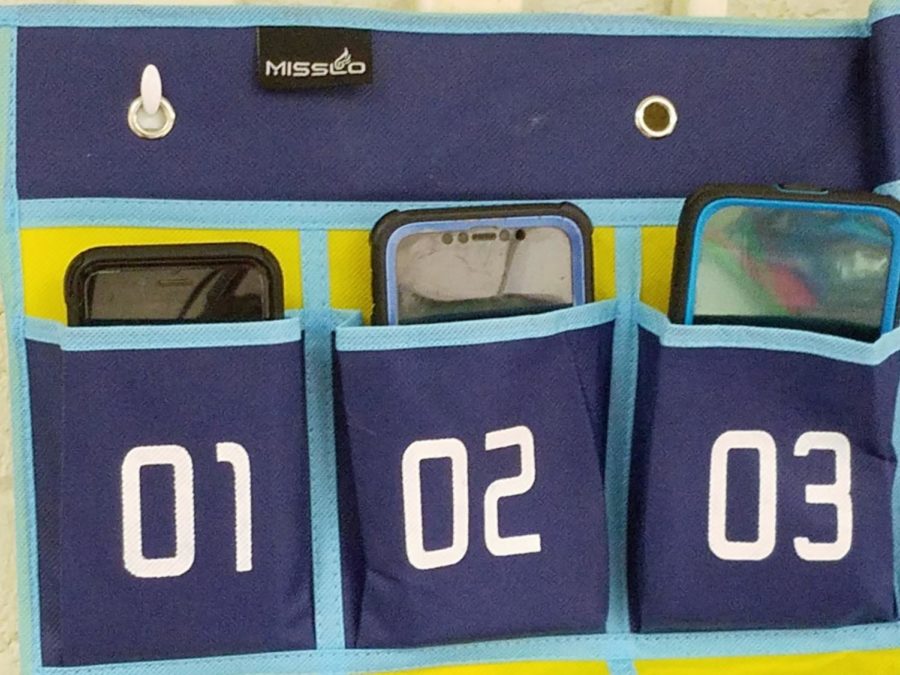Cell Phone Separation Anxiety Rings True in NAHS Students
January 9, 2019
Your teacher takes your phone away. What is your immediate reaction? Are you worried? Terrified? Nervous? Do you start sweating? For me, it’s all of those feelings. I’m constantly nervous that something is going to happen and I will miss it, no matter what the case is. I’m petrified that there will be an accident or an emergency, and I won’t know about it until the end of the period or even the end of the day.
As the modern world of technology is changing, more adults and teens struggle with cell phone separation anxiety because they are constantly glued to their phones and it only gets worse from there. According to an article published in the Independent, “Smartphone separation anxiety will become a bigger and bigger issue for people in the future, as technology becomes even more personalized and we grow ever more reliant upon it.”
In 2010, the UK Post Office commissioned a case study on people’s reactions to their phones being taken away. The study, sampling 2,163 mobile users, found that nearly 53 percent of mobile phone users tend to be anxious when they “lose their phone, run out of battery, have no more data left, or have no Wifi”.
This anxiety is so common, there is even a term for it now. “Nomophobia is the irrational fear of being without your mobile phone or being unable to use your phone for some reason, such as the absence of a signal or running out of minutes or battery power”.
Nick Richardson, sophomore, is one of those students who believes that cell phone separation anxiety is real. “Some people can’t live without their phones and some people have a fear of getting it taken away,” said Richardson. “I’d say it’s a real fear, and the effects can get you into trouble” He stated that being attached to a phone is like being attached to food. We need it to survive.
However, Bailee Hendricks, junior, offers a different opinion, suggesting the fear is mostly just in our heads. “We can live without [phones]. People did for hundreds of years.”
If we have lived for so long without computers and phones, why is it so hard to put our phones down now? Why do so many of us think we can’t live without our phones?
Emily Cochran, freshman, does not share Richardson’s fear but can understand where it comes from. “It’s because our phones are something important to us, we built a life on it and we [haven’t] experienced a life without it,” said Cochran. “It’s normal for us to have an uneasy feeling about getting it taken away I know it is for me.”
Cochran makes a strong point. We are constantly on our phones, and when we get our phones taken away for a couple days or a week, we just go back to being addicted. The older generation is always saying things like when I was your age we didn’t have this kind of stuff because they didn’t.
Some of us more than others need to cut back how many hours we are on our phones or near screens in general. Phones are distracting, but we can also easily get hurt by using them too much.
For example, a phone user can develop a condition called “Text Neck”, which can occur from looking down at a phone while texting or searching the web, putting a restraint on their neck and even damaging their spine, possibly causing Scoliosis.
Headphones can also be damaging. When your friend’s music is up way too high and you can actually hear the music word for word, your friend is damaging their hearing, which can result into hearing loss or a burst eardrum.
I hear my friends talk about how they go to sleep around 12am or sometimes even at 3am. Those friends are on their phone, texting, watching Netflix or on Facetime, and they don’t realize how much time has passed by because they are glued to their phones. It’s not healthy going to sleep that late at night without a consistent sleep schedule.
While technology often helps us, it can also get us into trouble if we are not careful. If you need help separating yourself from your phone, you can set a reminder in the morning or at night to get off social media or to stop watching Netflix. Seriously, even if you have to give it to someone to hide, do whatever you have to do to spend less time on your phone.




Devon Palmer • Jan 10, 2019 at 10:55 am
I’m addicted to my phone, So i don’t know what i’m going to do
Briar • Jan 10, 2019 at 10:53 am
I really dont think its that big a deal, but the poll says otherwise, i don’t think i have an addiction, i forgot my phone at home today and im not freaking out about it
Nasir • Jan 10, 2019 at 10:28 am
I think people should practice getting away from their phone for a while. People aren’t used to being away from their phone so when it gets taken away they freak out.
Sadiyah Perez • Jan 10, 2019 at 8:04 am
people who are constantly on their phone 9/10 don’t even get pop. they just be on instagram with their 200-300 followers, talking about they have ” cell phone seperation” like go sit down,